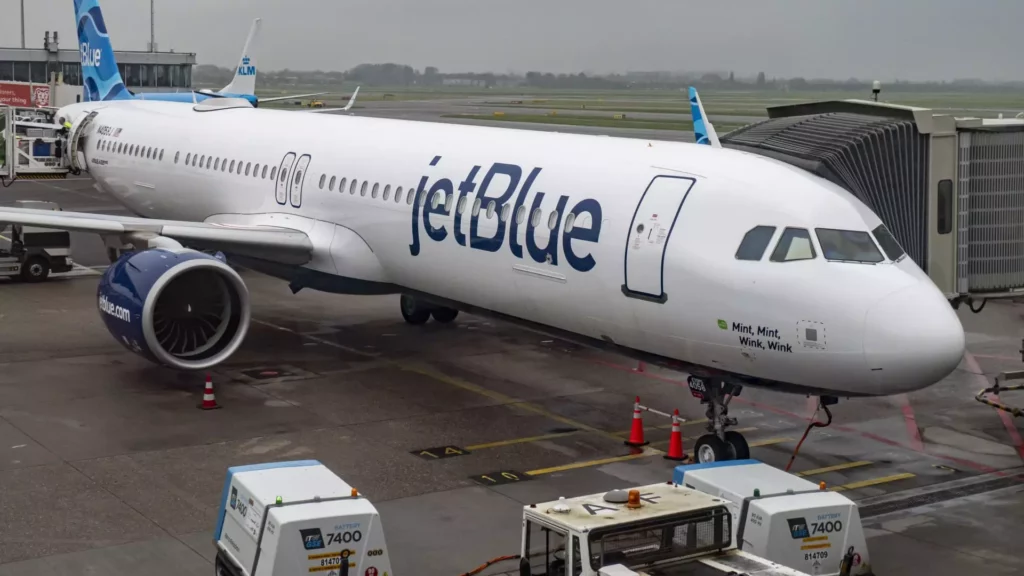![]()
JetBlue Airways saw its shares drop by over 10% in premarket trading after announcing a lowered revenue forecast for 2024. The airline revealed that second-quarter revenue is expected to decrease by up to 10.5% compared to the previous year, a figure that was more than double the anticipated drop projected by analysts. Additionally, the New York-based carrier indicated that full-year sales would experience a decline in the low single digits, falling short of Wall Street’s expectations after initially estimating flat sales for the year in January. This downturn in revenue has created challenges as JetBlue strives to achieve profitability.
In response to the revenue forecast setback, JetBlue has embarked on a cost-cutting initiative by discontinuing unprofitable routes and placing emphasis on routes with consistent demand and high sales for premium seats. The airline’s decision to terminate a merger agreement with budget carrier Spirit Airlines, following a legal blockage due to antitrust concerns, also reflects its strategic realignment to drive profitability.
JetBlue’s latest outlook update further underscores the disparities between the airline and its major competitors such as Delta and United, which possess extensive international networks. Despite facing challenges, Delta and United have issued optimistic forecasts for profits, robust revenue, and peak summer demand. This contrast highlights the evolving dynamics within the airline industry and the varying performances of airlines in the current market environment.
CEO Joanna Geraghty, who assumed the role in February, expressed confidence in JetBlue’s standalone strategy and reiterated the company’s commitment to achieving profitability. Acknowledging the impact of a Pratt & Whitney engine recall on its operations, JetBlue is actively exploring additional cost-cutting measures to mitigate financial pressures. Furthermore, the decision to defer $2.5 billion in aircraft spending underscores the airline’s focus on enhancing financial resilience amid challenging market conditions.
JetBlue’s financial performance in the first quarter of the year saw a significant loss of $716 million, or $2.11 per share, compared to a loss of $192 million, or 58 cents per share, in the same period the previous year. Adjusting for one-time items, the airline reported a narrower loss of $145 million, or 43 cents per share, surpassing analysts’ expectations. Despite a 5.1% decline in revenue to $2.21 billion compared to the previous year, JetBlue remains committed to its strategic initiatives to drive long-term growth and profitability.
JetBlue Airways’ revised revenue forecast underscores the challenges faced by the airline as it navigates a changing market landscape. By implementing cost-cutting measures, refining its business strategy, and enhancing financial resilience, JetBlue aims to overcome obstacles and achieve sustainable profitability in the future.

Leave a Reply